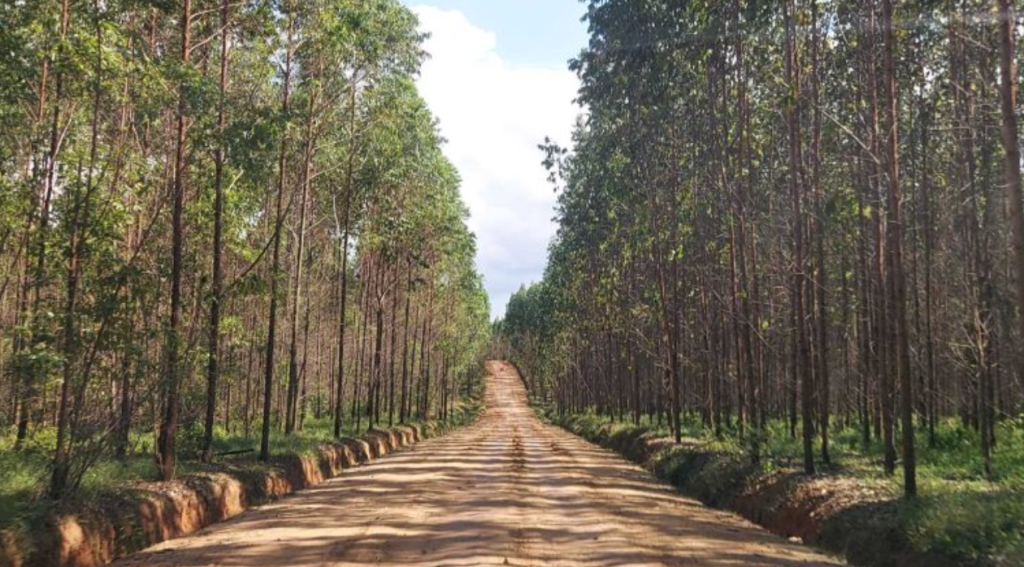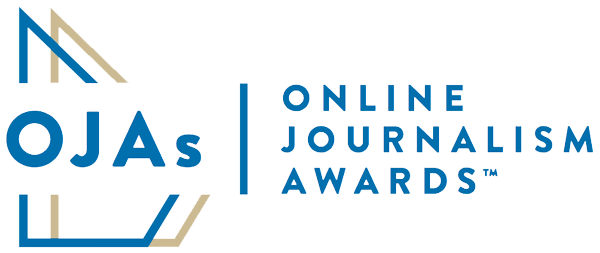
Environmental audits and certifications are part of a $200 billion sustainability industry meant to help fight the climate crisis. But the poorly regulated system for earning “green” labels frequently fails to hold companies accountable to environmental standards, labor laws and human rights, according to an investigation led by the International Consortium of Investigative Journalists (ICIJ).
Deforestation Inc. specifically looked at certifications for forestry products and organizations like the Forest Stewardship Council and the Programme for the Endorsement of Forest Certification. The reporting revealed that instead of urging manufacturers to reduce risks, third-party auditors regularly bestow “green” labels on products tied to illegal logging, human rights abuses and other crimes.
This important journalism collaboration was the winner in the Explanatory Reporting, Small Newsroom category in the 2023 Online Journalism Awards.
We chatted with project leader and investigative reporter Scilla Alecci to learn how the deforestation story came together. Scilla is no stranger to global collaborations and previously contributed to The Panama Papers, The Pandora Papers and The FinCen Files.
I began researching the environmental auditing industry while I was working on the Pandora Papers, an investigation for which I had to sift through companies’ financial statements audited by major accounting firms.
When journalists report on financial crimes, they often examine the auditors’ behavior to understand whether the white-collar professionals may have missed obvious red flags or failed to stop or prevent their clients’ criminal actions. I thought ICIJ and its media partners could do the same for environmental crimes and apply our expertise to the so-called sustainability industry.
Deforestation Inc. was a collaborative, cross-border investigation. We applied ICIJ’s rigorous fact-checking and data analysis methods to examine one of the most pressing issues of our times: forest destruction, which is one of the causes of climate change.
Our team of reporters and data journalists collaborated with media partners from 28 countries, from forest-rich nations such as Indonesia, Finland, Canada and Chile to major consumer markets such as Germany, South Korea and the U.S.
We used ICIJ’s platforms to communicate with each other daily during the nine-month investigation. We shared everything, including reporting leads, interview transcripts, documents, data analysis, photographs and videos.
As a result, we were able to hold accountable political leaders who promised reforms to halt forest loss. We also put pressure on companies that used shell companies, untraceable suppliers and other schemes to hide links to deforesters.
One of the topics covered by Deforestation Inc. was the trade of teak harvested in Myanmar, which is currently controlled by a military regime. ICIJ and its reporting partners used trade data as well as leaked files from Myanmar’s tax agency to expose companies that continue to import Myanmar teak even after many governments restricted this lucrative trade because it finances the junta. Reporters also visited yacht shows to talk to timber traders and understand how the supply chain works.
Unfortunately, the conflict in Myanmar has become what some have called a “forgotten crisis.” Thousands have been killed, injured or forced to leave the country since the 2021 military coup. Despite this, cynical business people continue to benefit from Myanmar’s natural resources, and consumers are not aware of the implications the goods they buy may have.
More is needed to raise awareness of Myanmar’s situation and how some products of Myanmar origin are linked to human rights abuses and environmental crimes.
I was humbled to hear that Deforestation Inc. won in the OJAs. The award not only acknowledges the work of ICIJ’s small team but also the dedication of the more than 140 reporters from around the world who collaborated with us to expose the flaws of the environmental auditing industry.
In Europe, I loved The Forever Pollution Project and, in Asia, Newstapa’s International Adoption series.
Launched in 2000, the Online Journalism Awards are the only comprehensive set of journalism prizes honoring excellence and innovation in digital journalism around the world. The call for entries for the 2024 awards will be open April 4–May 9.
Explore the 2023 winners and finalists Volunteer with the OJAsThe Online Journalism Awards™ (OJAs), launched in May 2000, are the only comprehensive set of journalism prizes honoring excellence in digital journalism around the world.

Posted By
Karolle Rabarison
Categories
Stories